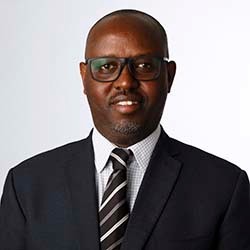Niger
The Context
Niger covers a landlocked 1,267,000 km² tract of the Sahel north of Nigeria. With a poverty rate of 48.9 per cent and income per head of US$420, Niger is one of the world’s poorest nations. In 2015, it ranked last among 188 countries measured by the United Nations Human Development Index.
Its population was estimated in 2016 at 19.8 million, growing at 3.9 per cent a year, one of the fastest rates in the world. Niger is prone to political instability, chronic food insecurity, and droughts, floods and locust infestations.
Uranium and oil production are cornerstones of the economy, but agriculture is an important source of export earnings. Niger’s climate is hot and arid. Farming centres upon small-scale family farms which produce both rainfed cereals and vegetables and irrigated crops, including onions, sesame and cowpeas.
Recurrent droughts are damaging natural resources and cereal yields are forecast to fall unless production systems are adapted to climate change.
Yet cereal and horticultural yields could be substantially increased by adopting improved cropping techniques, better seeds, animal-drawn ploughing, better irrigation techniques and other innovations.
This would enable rural families to produce enough for household consumption and a surplus for sale, while at the same time improving their resilience to climate change. Already, irrigated cropping is increasing and now accounts for 30 per cent of farm production and 90 per cent of agricultural exports.
The Strategy
IFAD has built its strategy in Niger on helping family farmers adapt to structural risks and potential external shocks. This model can improve food and nutrition security and fostering lower poverty, economic growth, sustainable rural development and resilience to climate change.
In Niger, IFAD is working to enhance the capabilities of small-scale rural producers, especially the most marginalized socio-economic groups, and help them cope with changes.
By helping family farms and other rural households intensify and diversify production, post-production and marketing, we make livelihoods more resilient and sustainable.
Our country strategic opportunities programme for 2013 through 2018 targets 195,000 rural households totalling approximately 1.4 million people.
Key objectives include:
- sustainably increasing output of small farmers, foresters and pastoralists;
- improving smallholders' post-production and marketing activities; and
- strengthening social networks and collaboration among poor rural people, making local institutions and commercial activities more sustainable.
Results-based country strategic opportunities programme (COSOP) Arabic | English | French | Spanish
Country Facts
In 2015, Niger ranked last among 188 countries on the United Nations Human Development Index.
Primary production generated 46 per cent of GDP between 2005 and 2010, and is the main engine of growth. It employs 84 per cent of the workforce and provided 26.4 per cent of export revenues in 2010.
Since 1980, IFAD has supported 12 programmes and projects in Niger, investing US$556.5 million and directly benefiting more than 1,023,000 rural households.
